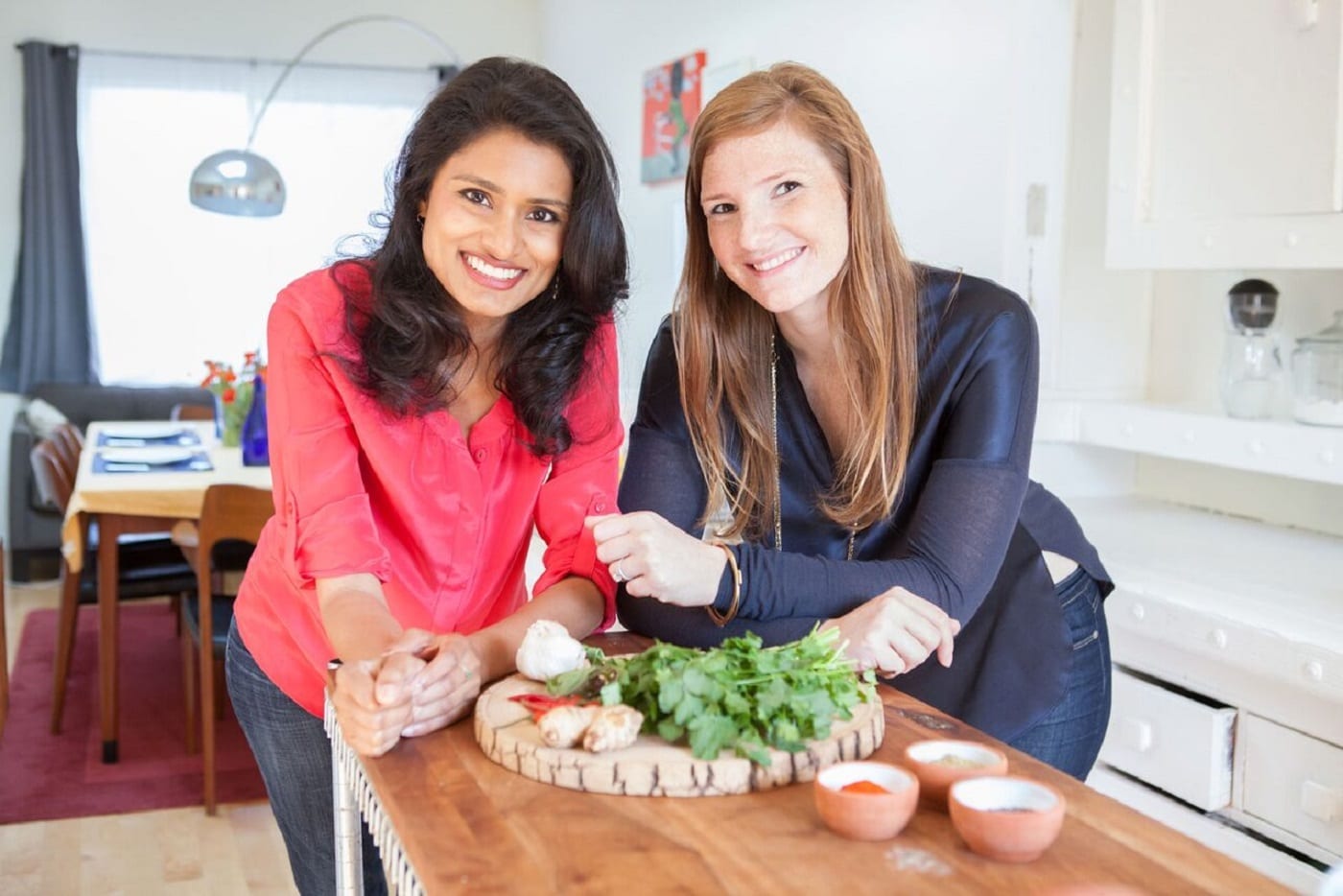Culinary Tourism Brings Cultures Together One Home-Cooked Meal at a Time
By Lisa Rubenson
Starting a business can be a bit like creating a recipe from scratch. You begin with an original idea, gather the essential elements, then go forth with a mix of passion, skill, and determination that reflects your original vision. If all goes according to plan, give or take a pinch of trial and error, the result is a success worth sharing.
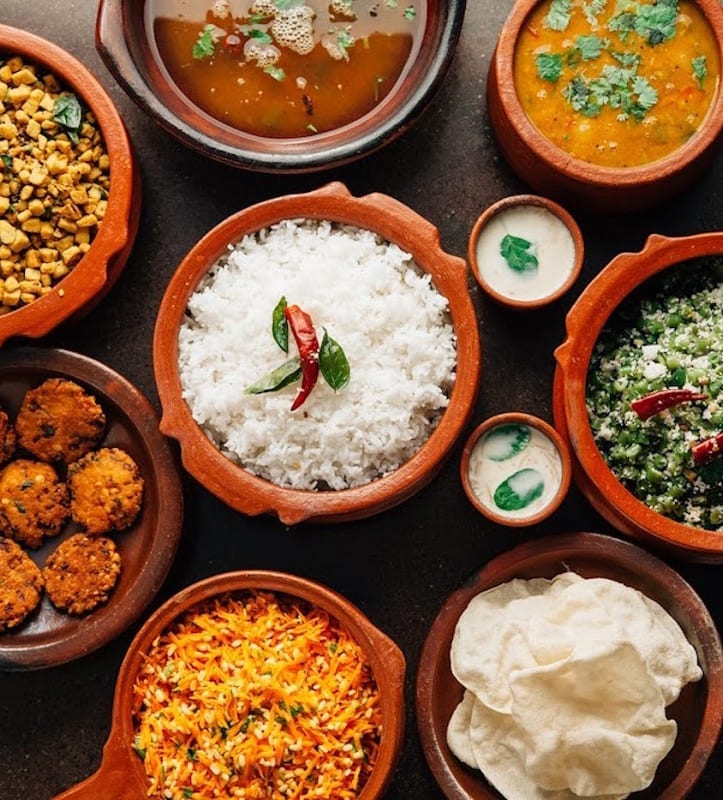
A SAMPLING OF TRAVELING SPOON EXPERIENCES:
Private cooking classes in cities all over the world: Athens, Bali, Bangkok, Brussels, Chiang Mai, Kyoto, Florence, Mexico City, New Delhi, Seoul, Tokyo
Mumbai Market Tour and Cooking Class
Casablanca Market Tour and Cooking Lesson
Icelandic Home-cooking with Musical Hosts
Interactive Market Tour & Paella Class in Barcelona
Private Cheese Tour in Italy
Cook a Colombian Meal with a Chef & His Family
Traditional Dishes of Nepal
This is the kind of venture Aashi Vel and Steph Lawrence started on in 2011, shortly after meeting as graduate students at the University of California— Berkeley Haas School of Business. The women had no way of knowing they would spend the majority of their time at Haas developing their own culinary tourism company, Traveling Spoon, Inc., which connects travelers to in-home cooks all over the world.
Aashi, a graduate of the Savannah College of Art and Design (SCAD), had been working as an award-winning industrial designer. Steph, with a degree in sociology from Dartmouth College, had built a successful career working with international development agencies, women’s micro-enterprise groups, and as a marketing consultant in the food industry. Each had come to Haas looking for new challenges and entrepreneurial opportunities.
In a bit of delicious irony, the two struck up a conversation at the hors d’oeuvre table at a campus welcome reception. They quickly discovered a shared interest in cooking, world cuisine, and travel, and swapped stories about how hard it was to find culturally authentic dining experiences when abroad.
Steph described a family trip to China in 2007. After more than two weeks visiting tourist hot spots and eating with other Westerners, Steph felt disconnected from the Chinese people and culture. She vowed to return and, in two years, she did, enrolling in an extensive Mandarin language study program.
“I wanted to learn the language so I could connect more deeply with the culture,” says Steph. “Specifically, I wanted to find a Chinese grandmother and have her teach me how to make dumplings—to learn the family recipes that people were learning in their homes.” Not being able to find the cultural experience she was looking for was her first “light bulb moment” that she may have to create her own.
Aashi shared Steph’s frustration and had a similar story to tell. “I like to explore different cultures through food,” she says. Despite her efforts to find out-of-the-way restaurants with good reviews and authentic food, she would often find cuisine that catered more to a Western palate.
Once, when traveling in Mexico, Aashi was walking through a village on her way to a local restaurant. Through an open window, she saw a woman cooking dinner in her kitchen. The smells and sounds of an authentic Mexican meal being prepared stopped her in her tracks.
“This is where I wanted to eat,” she recalls. “I wanted to cook with this woman, sit at her table, eat local, authentic food and hear her stories.”
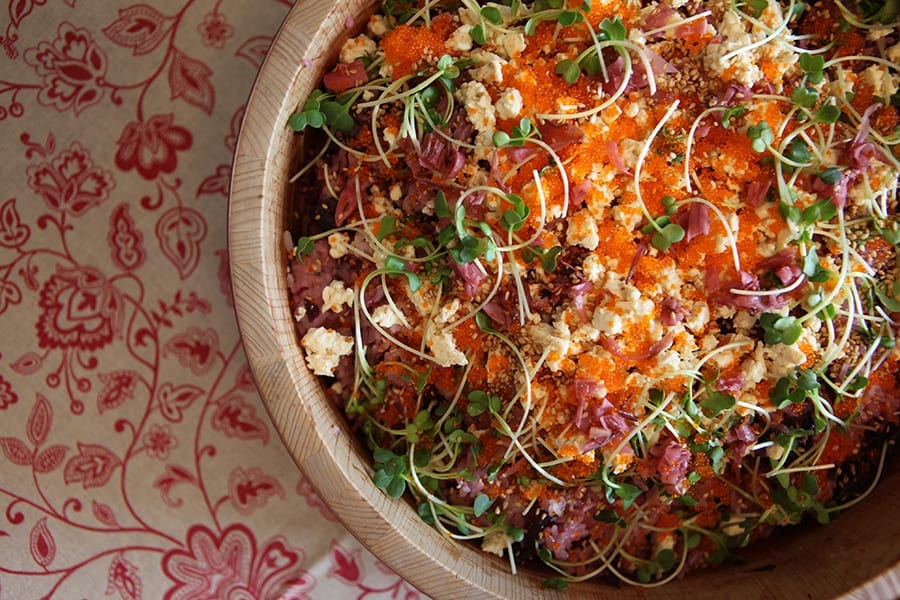
While Aashi did not knock on the woman’s door that night, that longing for a meaningful connection to a local home cook stayed with her. When Aashi and Steph discovered they had such similar stories, the idea for Traveling Spoon was born. They refined their concept in their classes at Haas and, after graduating in 2013, co-founded and became co-CEOs of the company.
Traveling Spoon invites travelers to “travel off the eaten path,” meaning they can choose from a range of more than 1,000 private, authentic dining and cooking experiences with home cooks in 110 destinations across 40 countries. Travelers can show up, sit down and enjoy a home-cooked meal, or they can book an experience that includes going to the market with a host and learning how to prepare a local meal, start to finish.
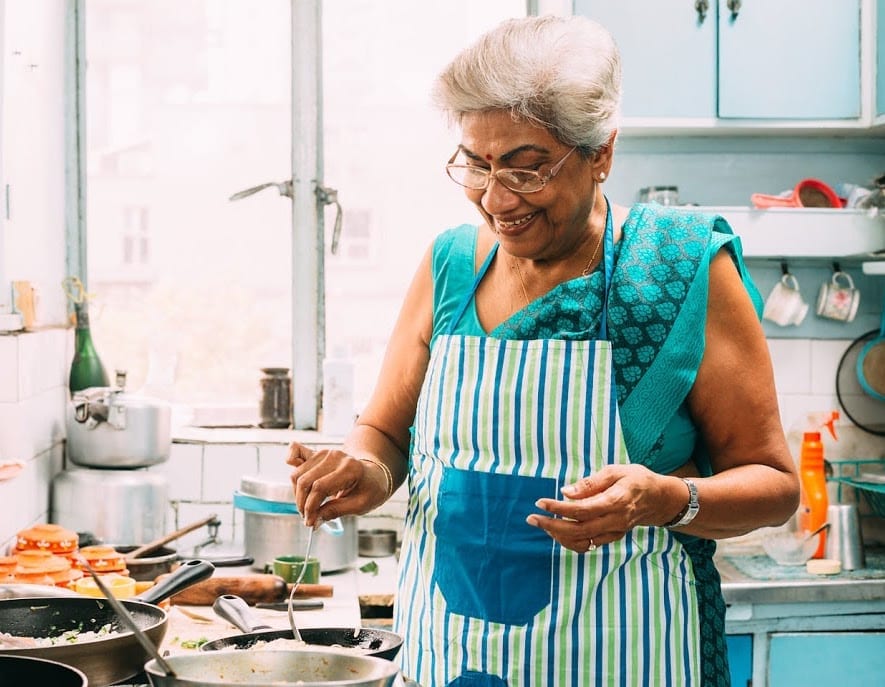
“Sharing a meal is the best way for
people to get to know one another.
This is how we realize how similar we
are, despite being from different parts
of the world, different cultures.”
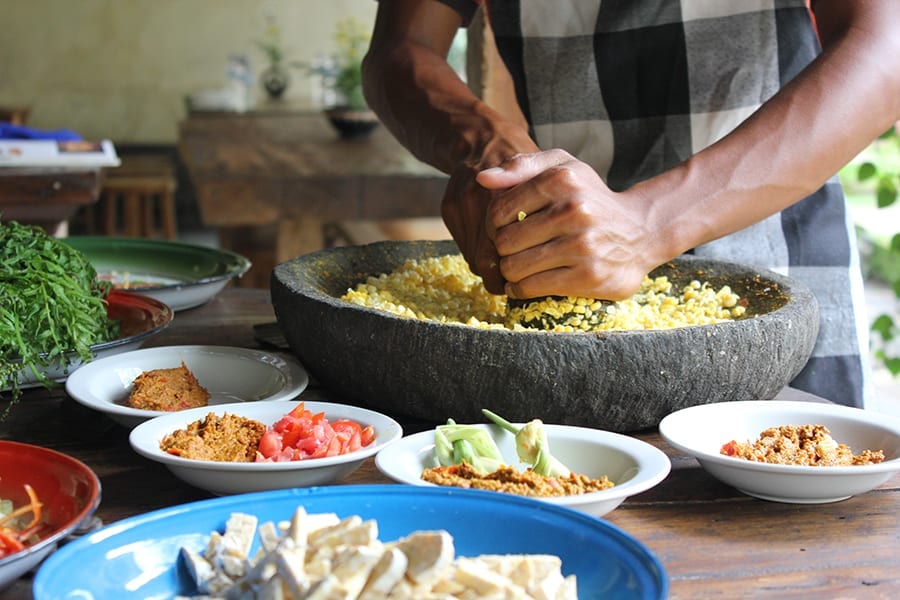
Hosts set their own prices, to which Traveling Spoon adds a markup. Before a host can be added to the site, Aashi and Steph or one of their trusted, in-country ambassadors personally vets each host. This includes traveling to the host home, sampling their food, and assuring the location is safe and accessible.
“We are on a mission to transform every traveler’s journey,” says Aashi. “Sharing a meal is the best way for people to get to know one another. This is how we realize how similar we are, despite being from different parts of the world, different cultures.”
There are benefits for the hosts, as well.
“Seventy to 80 percent of the fees go directly to the hosts, so we feel great about being able to contribute to the local economies,” says Aashi. One host in Indonesia had an injury that left him unable to work. The revenue he generated as a Traveling Spoon host meant he could still afford to send his kids to school.
“We want to focus on the meaningful connection between the traveler and the host,” says Steph, pointing out that they often hear about long-term friendships developing between the two parties. “When you come into someone’s home and break bread together, it changes your perceptions of the unknown. Th is can only make the world, and the distance between us, smaller.”
Steph and Aashi, along with a small team of full-time employees, run Traveling Spoon out of their offices in the San Francisco Bay Area. Their ambassadors help promote the company abroad, and they rely on a team of trusted technical and industry advisors—leaders in the travel and tourism space—to ensure they stay current with trends.
“People who are passionate about food and travel see this as the future of travel,” says Steph. “They want to be a part of it.” The curatorial business model, along with leadership’s commitment to personally vet each host, sets the company apart from others in the fast-growing culinary or “gastro” tourism industry.
Both women are intent on managing the growth of their company at apace that will enable them to preserve the integrity and authenticity of their curated experiences. For Aashi and Steph, women who built their company on a foundation of friendship and a passion for food and travel, there’s no substitute for quality when creating a recipe for success.

